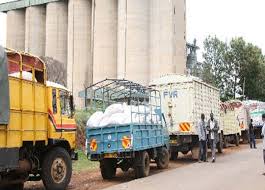
Nairobi,KENYA: Senate Ad Hoc committee is set to investigate the National Cereal and Produce Board on the status of maize crisis in the country.
In a media briefing at parliamentary buildings led by its chair Prof Margret Kamar and vice chair Moses Wetangula said that the committee will investigate various issues surrounding the board and the status of the commodity in the country after the crisis hit the country from yesteryears.
Issues to be investigated are as to why farmers have not been paid following the fact that they delivered their produce to NCPB , the quantity of duty-free maize imported into the country during the duty-free window which was to end in October 2017 and as to why the period was extended.
“NCPB has on many occasions declined to buy maize from farmers claiming that its stores are full to capacity, and failed to pay the farmers whose produce it has received, thereby exposing them to severe financial problems,”Kamar said
The committee also will inquire on the criteria for identification of millers and business persons involved in the importation of maize into the country.
The investigation will take a period of two months after which it will make recommendations which will touch on legislative proposals to address issues ailing the NCPB, regulatory proposals on payment of farmers, also the management of seed and subsidy.
On 8th of August this year, the Senate adopted a motion to establish an Ad Hoc committee to investigate the maize situation in the country.
On the other hand, a section of members of parliament led by Moiben legislator Silas Tiren and his Nandi Hills counterpart Alfred Keter have opposed the government’s move to initiate levy to fertilizer terming such move away of killing the agricultural sector.
They also raised concerns over government’s decision to import wheat at 10 percent from Tanzania following the fact that the commodity in the country surpasses percentage required.












